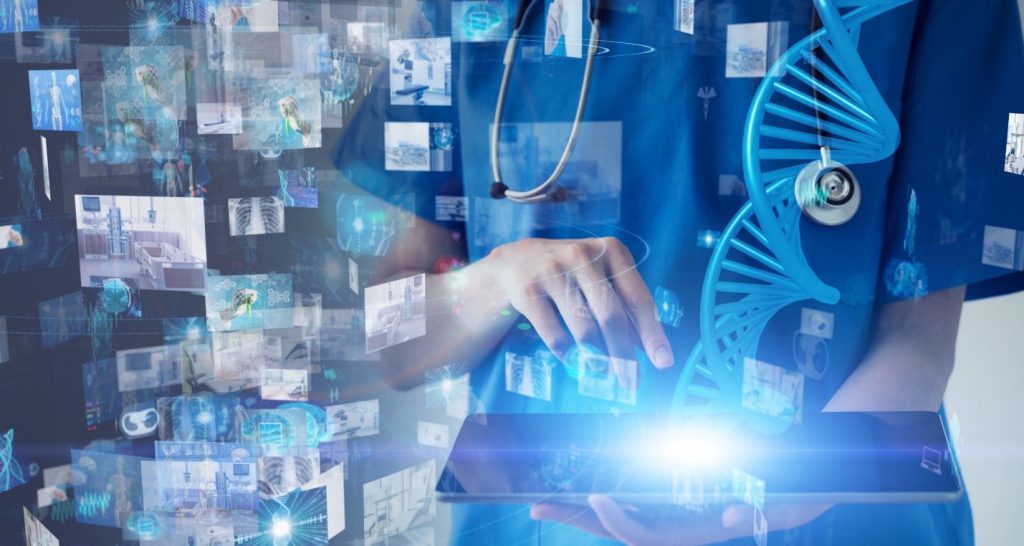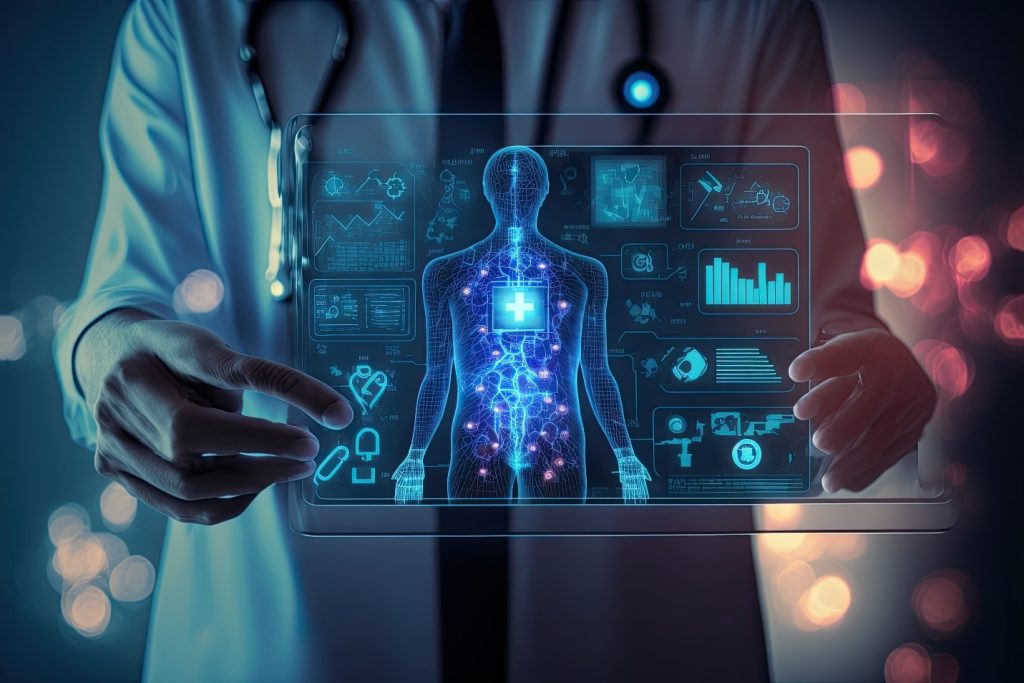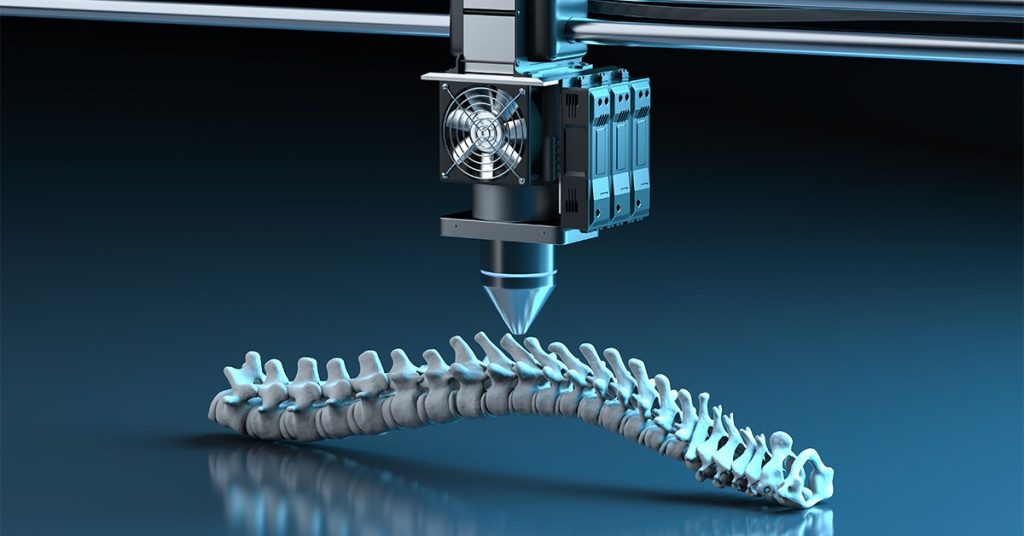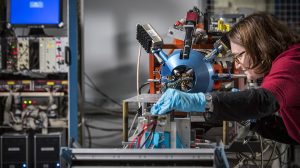In the ever-changing environment, innovative technologies that have the potential to improve patient care, diagnosis, and treatment are shaping the future of healthcare. They offer new ways to improve patient care, and increase accessibility. In this article, we will look at some of the most significant developing trends and technologies that are transforming the future of healthcare.
The Impact of Telemedicine
Telemedicine is the practice of remotely providing treatments using telecommunication technology. It has emerged as a significant method for bridging geographical and logistic barriers in healthcare access. Patients can communicate with healthcare providers through virtual consultations and remote monitoring without traveling. Additionally, it saves time, costs and ensures that medical advice is available for those who live in rural or underprivileged areas.
Artificial Intelligence in Healthcare Diagnostics
Artificial Intelligence (AI) has made noteworthy advancements in healthcare diagnostics. Advanced machine learning algorithms can handle enormous amounts of medical data, helping in disease identification, prediction of patient results, and personalization of treatment strategies. AI-powered diagnostic technologies increase accuracy, speed, and efficiency, allowing medical personnel to make better decisions and deliver better patient care.

Robotic Precision
Robotics in healthcare, particularly in surgical operations, marked a new era of accuracy and minimally invasive surgeries. Robots can conduct complex treatments with remarkable accuracy when supervised by expert doctors. These surgeries result in more minor cuts, less discomfort, faster healing times, and less scarring. Not only do robotics improve a surgeon’s ability, but they also ensure better results, and a higher quality of life for patients.
Internet of Things (IoT) and Remote Monitoring
The Internet of Things (IoT) has made way for intelligent medical devices and wearables. Devices like smartwatches and wearable sensors capture and instantly transmit real-time health data to healthcare professionals. Continuous remote monitoring of symptoms and health data enables diligent activities, prompt treatment plan revisions, and early diagnosis of possible health problems. IoT-enabled healthcare encourages patient-centered, individualized approaches to medical care.
Virtual Reality and Augmented Reality in Therapy and Training
Therapy, rehabilitation, and medical training are being transformed by Virtual Reality (VR) and Augmented Reality (AR) technologies. Immersive settings are provided through VR therapy for pain management, anxiety treatment, and physical rehabilitation procedures. Healthcare professionals use VR and AR for teaching as well; allowing for hands-on experience in an authentic environment. These technologies improve learning experiences, improve patient outcomes, and provide advanced skills to medical professionals.

Blockchain
Blockchain technology has transformed healthcare data management by providing health record confidentiality, integrity, and accessibility. Patient data stored on blockchain systems is encrypted, decentralized, and secure, improving data security and privacy. Furthermore, blockchain facilitates the frictionless exchange of medical information across healthcare professionals, resulting in more effective and efficient healthcare.
Personalized Medicine and Genomic Research
Personalized healthcare has been made possible by advancements in genetics and the study of molecular biology. Medical professionals can adapt treatments and medication to particular genetic characteristics by evaluating an individual’s genetic structure. Personalized healthcare ensures that medical therapies are not only more effective, but also have fewer harmful effects. As genomic research discovers new possibilities, customized treatment will become an essential component of future healthcare practices.
3D Printing
3D printing technology has transformed healthcare by enabling the production of specific products, such as prosthetic devices, surgical instruments, and medical devices. The flexibility to design devices for particular patients provides optimal comfort and outstanding functionality. Additionally, 3D printing is helpful in research and development since it allows scientists to manufacture complicated biological structures, cells, and even organs for transplantation. This device has the potential to solve organ shortages while also enhancing transplant success rates.

Ethical Considerations in the Age of Advanced Healthcare
As healthcare technology proliferates, ethical issues become increasingly important in ensuring these improvements are utilized responsibly and moderately. Patient privacy, acceptance, and a fair distribution of resources are all becoming increasingly crucial. Ethical frameworks and standards are critical for navigating the complexities of developing healthcare technology and establishing a future in which medical discoveries are not only innovative but also ethical.
Additionally, a massive increase in technological innovations has shaped the future of healthcare. Robotics, IoT, VR, AR, blockchain, and 3D printing are leading the way in a new era of healthcare in which treatments are individualized, results are maximized, and patient experiences are greatly enhanced. As these technologies grow, they are sure to further change healthcare, making it more accessible, efficient, and effective for people worldwide.
Disclaimer: Any opinions expressed in this article do not necessarily reflect the opinions of Gibbous. This content is meant for informational purposes only.







